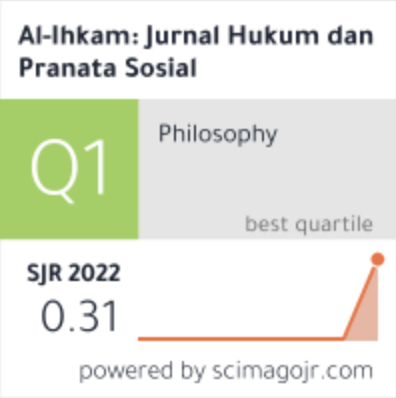About the Journal
Al-Ihkam (P-ISSN 1907-591X and E-ISSN 2442-3084) is a high-quality open access peer-reviewed research journal published by the Faculty of Sharia, Institut Agama Islam Negeri Madura, Pamekasan, East Java, Indonesia in collaboration with The Islamic Law Researcher Association (APHI). Aiming to communicate original research and relevant current issues, this journal regularly publishes articles and research reports twice a year every June and December. It focuses on the issue of Islamic Jurisprudence, Law and social science concerning plurality and living values in Southeast Asian society. The social sciences that Al-Ihkam specializes in consist of religious studies, anthropology, criminology, economics, history, philosophy, political sciences, sociology and social psychology. The contents range from established and applied Jurisprudence in Southeast Asian society, local culture, to various approaches on legal studies. This journal warmly welcomes contributions from scholars with related disciplines. Novelty and recency of issues, however, are the priority in publishing.
Al-Ihkam has been indexed at SCOPUS, DOAJ, DIMENSION, and SINTA 1 (Accredited by the Directorate General of Research and Development of the Ministry of Research, Technology, and Higher Education of the Republic of Indonesia). Al Ihkam got a prize from the Indonesian Constitutional Court as the First Awardee of Constitution Prize on Scientific Journal of Law and National Constitution 2019.
Al-Ihkam: Jurnal Hukum dan Pranata Sosial has been indexed in Scopus
Al Ihkam has become a CrossRef Member since year 2015, therefore all articles published by Al Ihkam will have unique DOI number.
Published by :
Faculty of Sharia IAIN Madura collaboration with The Islamic Law Researcher Association (APHI)

.png)
_1.png)










